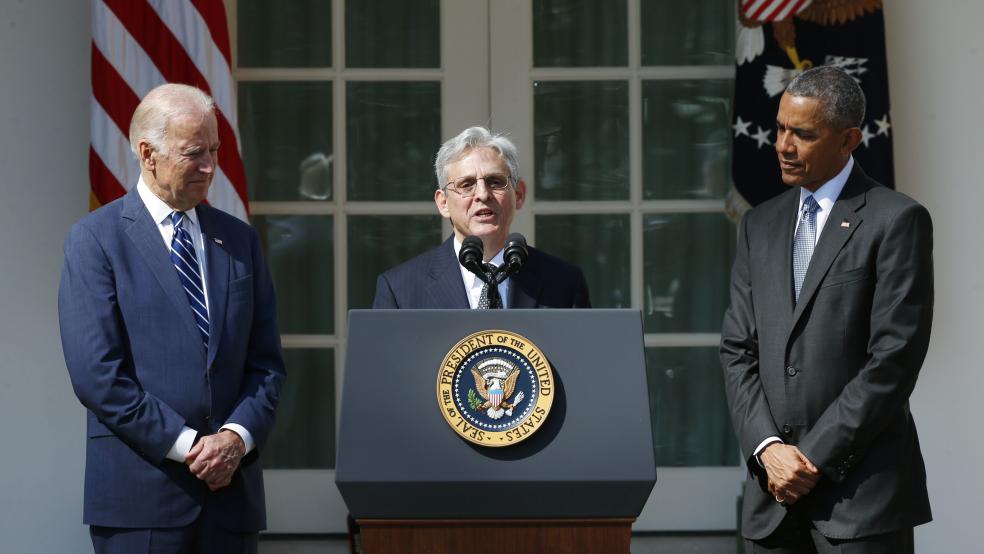With stunning speed this week, Donald Trump has gone from being the guy most likely to get the Republican presidential nomination, though possibly not without a bitter convention fight, to the uncontested presumptive nominee. That changes things for a lot of people in Washington -- not all of whom are directly connected to the presidential race.
As long as Texas Sen. Ted Cruz and Ohio Gov. John Kasich remained in the contest, there was a possibility, however remote, that Trump could be prevented from assembling a majority of delegates before reaching the convention in Cleveland this July, and that his relatively weak organization might be outmaneuvered in a multi-ballot selection process.
Related: Anti-Trump Republicans Desperately Seeking a White Knight
But the unexpected decision by Cruz to withdraw from the race on Tuesday night, and Kasich’s decision to follow suit on Wednesday, removed a lot of uncertainty about the future. It also left many Republicans in despair about the possibility of their party retaking the White House in November.
Both of those factors have major repercussions that extend well beyond the presidential race. Here are five people most noticeably affected by the elevation of Donald Trump to the status of presumptive nominee.
1, Judge Merrick Garland. President Obama’s nominee to fill the seat on the Supreme Court left vacant by the death of conservative icon Antonin Scalia has been languishing in political limbo ever since he was revealed as the president’s choice on March 16. Republicans in the Senate, led by Senate Majority Leader Mitch McConnell and Judiciary Committee Chairman Chuck Grassley have flatly refused to grant Garland either a hearing or a vote on his nomination.
However, with the news that Trump is now the expected nominee, many Republicans are anticipating a loss in November, and are expressing willingness to reconsider Garland, a demonstrated moderate, rather than relying on President Hillary Clinton to nominate someone more appealing.
It would take some maneuvering for Senate Republicans to engineer a face-saving climb down from their stand against the jurist, who is currently chief judge of the Federal court of appeals for the District of Columbia Circuit. But considering that the rationale for refusing to act on the nomination was a fiction to begin with, surely they can come up with a storyline that explains an about-face on Garland.
Related: Kasich Makes It Official -- Trump Is the GOP’s Last Man Standing
2. Reince Priebus. Priebus, the chair of the Republican National Committee, spent weeks being publicly abused by Trump for running what the billionaire insisted was a “rigged” nominating process meant to prevent him from taking the reins of the Party. Between defending the process from Trump on one hand, and resisting angry calls to take action against Trump for traditional constituencies within the GOP on the other, Priebus has had one of the worst jobs in the country for the past several months.
Now, though, the presumptive nominee version of Trump praises Priebus in his victory speeches, and the RNC chair’s new role is clear: He is cheerleader-in-chief for The Donald.
If there was any remaining question about whether the RNC chair would balk at having to sign on to serve as Trump’s designated booster from now until November, they were removed Monday morning. Appearing on CNN, Priebus said, “You know what, I think something different and something new is probably good for our party. Look, I don’t think anyone predicted what happened. So, look, we’re here. We’re going to get behind the presumptive nominee.”
3. Paul Ryan. For a man who delivered a Shermanesque refusal to be considered as an alternative candidate for president in this cycle, House Speaker Paul Ryan has spent a lot of time behaving like a presidential candidate in the last two months, delivering speeches, participating on town hall events, and generally working to put a capable, results-oriented face on the Republican Party.
The conventional wisdom has it that Ryan has been trying to serve as a counterweight to Trump -- to advertise policymaking seriousness at a time when the most visible figure in the Republican Party seems to have little knowledge and even less interest in the details of how the country is governed.
Whether he likes it or not, Ryan’s contract to play the role of “the reasonable Republican” has just been extended for four years.
Related: Google Search Has Some Bad News for Trump
4. Endangered Republican Senators. This was always going to be a tough year for the GOP when it came to protecting the party’s control of the Senate. Republicans are defending more seats than Democrats are, and overall, those seats are more at risk.
Trump’s nomination, if the forecasts are correct, is likely to take a number of general election toss-up states out of play in November, all in favor of the Democrats. That’s especially bad news for Republican senators who were hoping for some coattails to ride to reelection.
Among the most affected by a Trump candidacy: Ron Johnson of Wisconsin, Kelly Ayotte of New Hampshire, Mark Kirk of Illinois, and Rob Portman of Ohio.
Related: An Economic Agenda for Disruptor Trump
5. #NeverTrump Pundits. Blocking Trump from the GOP nomination became a point of honor for more than a few high-profile conservative writers and television personalities during the primary. The billionaire former reality television star’s record of less-than-conservative positions, his openness to war crimes and racial profiling, and his evident lack of knowledge about how the government and economy actually work combined to make him utterly unacceptable to much of the GOP intelligentsia.
That means that now, conservative stars like George Will, David Brooks, Ross Douthat, Erick Erickson, Glenn Beck, and countless others either have to find themselves a new intellectual home, or continue to squat in the ruins of the GOP, hoping that post-Trump, there will be a movement to rebuild.





